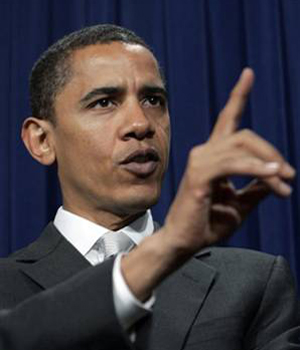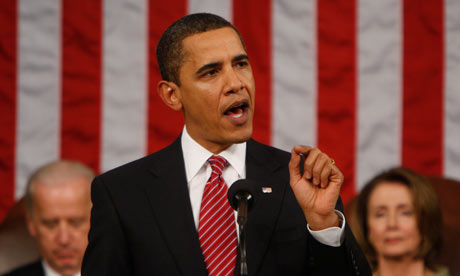Sunday, January 30, 2011
A few thoughts on abortion as an issue
Back in college days, a few of my fellow psych' students and I decided to do some research into, in our words, "the attitudes, personality and knowledge" of protesters and counter-protesters at an Operation Rescue rally at an abortion clinic near our university. The research data was a little boring; basically, pro-lifers turned out to answer more questions on fetal development correctly than pro-choice types. The behavior of the two groups at the rally, however, may have proven something more....
The pro-life Operation Rescue people were on the opposite side of the street from the clinic, and the counter-protesters were on the same side opposite to them. Even approaching these twin demonstrations, we could hear taunts and insults from the pro-choice side. Outside of a little rhetoric, all the words from near the clinic were attempts to ridicule or judge the people on the other side of the street.
We decided to split into two groups, one for each side of the street, in order to avoid accidentally handing out our questionnaires to anyone twice, and feeling at least a slight aversion to the jeering of the clinic's supporters, I opted for the pro-life side. As a researcher, after all, I had to at least try to prevent myself from displaying any emotional reaction liable to influence the interviewees in any way, and that job just might be a little easier with the less fractious set.
I did not start any conversations with my interviewees. I simply handed out questionnaires. I politely refused to respond to any inquiries as to my own feelings on abortion. More than one person did tell me their reasons for being there, however, and contrary to the pro-choicers estimations, many of them did admit the need for abortion to save an at-risk mother's life or in other, less defined situations. They were terrified, however, of the possible use of abortion-on-demand as a contraceptive for dummies. Basically, they wanted some kind of restraint, and (again contrary to the stated views of them from across the street) they were willing to negotiate to get them.
At some point after the standing protest, the head organizer of the pro-life side of this event spoke, and his words did not seem in any way to represent the stated opinions of the protesters on his side. He certainly did want to outlaw abortion, lock, stock and scalpel.
Listening to his words, I had to wonder about a few things. Had the pro-choice movement possible pushed these people into this man's political arms? Did the pro-choice side have possible motive's for doing so? Pro-choice literature often portrays the need for abortion as something of a medical emergency, and any emergency will rivet the willing and a good number of the semi-willing to action. Were the pro-choicers using that to make a louder and therefore more politically intimidating following?
After our research, my fellow students and I met at a Burger King to hand our data in, but after that we began talking about what we had seen from a more personal perspective. The head of our project was decidedly pro-choice, but even she admitted anger at the confrontational style of "her" side of the debate. I shared my political perceptions, and the others admitted the possibilities.
At the end of things, we all went home of course, but the perceptions of that day have stayed with me. In this "No Labels" time I submit them for your consideration. At least one side of the abortion debate just might be shooting itself in the foot and giving its opponents the means to shoot back.
Just a few thoughts....
Saturday, January 29, 2011
A few thoughts on just possibly being wrong about Egypt and Tunisia.
I'm very happy over that possibility!
The "revolution" in Egypt just might have something to uphold. According to London's The Daily Telegraph, American diplomats have been fostering this result for the past three years....
Now this is Machiavellianism at its moral best. At least at first glance, we seem to have found a People's Revolution and supported it. Yes, in a sense we did depose the leader of a foreign land, but for once we just might have done so to enact the will of the people rather than simply the ambitions of that leader's rivals. Theoretically then, a setback in one life may have resulted in real relief for several million.
If Obama took this opportunity, we will at last be able to negotiate from a position of strength in the middle east, and to quell the source of our power, middle eastern leaders will at have to heed the will of their citizens. This sort of thing was the supposed reason for our invasions of Iraq and the now supposedly "nice" (previously unacceptable) Taliban previously ruling Afghanistan, and this time, given success, we just might not leave ground forces behind.
In this case, not actually a thought, but a hope....
PS: Of course--and this just came in--the news now claims The Muslim Brotherhood to be the cause of the Egyptian uprising. I don't know much about them, but the simple fact of their having an agenda other than that of service to the people of Egypt does not bode well. Oh well, I'll still hope for the best for Egypt, but then, I did that before
Labels:
Arab,
Arabia,
Arabic,
Barak Obama,
Egypt,
Egyptian. Middle East,
Middle Eastern,
near east,
revolt,
revolution,
Tunisia,
Tunisian
A Few Thought on The Uprising in Egypt
Well, inspired by the Tunisian example, the Egyptians are trying to riot their leader out of power. As with the Tunisians, I wish them absolute success, but I cannot state my optimism for this affair either.
To put it plainly, a revolution that simply throws someone out of power creates only a power vacuum, and in the face of such anarchy, even people of strong will and good intention are likely to accept the most stable government possible, even that of a dictator. Successful revolutionaries, such as those in my country, or in eighteenth century France, or twentieth century Russia, had or put some form of government in place to fight for. Cromwell's revolt and assorted civil wars in the third world lacked this structure, and they resulted only in dictatorships.
In some ways, establishing a shadow government or swearing loyalty to a Continental Congress, is simply the least test of a people's desire for change. Without genuinely organizing something to oppose oppression, they prove their lack of resolve to fight an oppressor able to inflict pain--and are there any other kinds? Furthermore, without anything to put in power at the end of the fight, the Egyptians and the Tunisians may find themselves with nothing but another single ruler, perhaps promising not to be a tyrant, but only perhaps.
Just a few thoughts....
Labels:
Arabia,
Arabic,
Egypt,
Egyptian,
Middle East,
Middle Easter,
near east,
politics,
revolt,
revolution
Thursday, January 27, 2011
A few thoughts on Social Security
Economics has rarely been the straightforward exchange of goods for money from the textbooks. A few abstractions, perhaps even white lies, come into play, and strangely,they actually tend to improve the economy and therefore social security.
Now, for the worth of a given company's stock to rise or fall without the introduction of a new service, product or procedure (i.e., without a change in the worth of the company), investors either have to judge those stocks exchange by some standard other than the worth of the issuing company or find some cheaper way to finance or process their purchase; and all of these things do seem to occur. Traders have bought on Credit, pre-sold crashing stocks and cyber-traded entirely worthless ones. Each of these actions has helped to raise the overall price of stocks, and each has drawn criticism for its believed role in a serious downturn. Even in the face of stern efforts to prevent such creative finance however, someone will invent some new system of something and bring the economy to new highs while risking very sudden lows, and, as the economy often follows the market for some reason, Gross American income will rise, taking the tax base and social security with it. Certainly given the twenty-five years till the expected S.S. blowout it will.
Of course, we'll still have the stock market to worry about, but that may be an unavoidable and perhaps ultimately desirable constant.
Just a few thoughts.
Labels:
budget. politics,
deficit,
economics,
scocial security
Wednesday, January 26, 2011
A few thoughts on Obama's Speech
Energy: In some ways, Obama is like a bad-luck version of Capt. Kirk. He at least seems to know that we have to get out from under imported oil, and, like the engineers on the Enterprise, he even seems to grasp the scientific strides needed to change our energy future. Unfortunately though, he doesn't have Gene Roddenberry picking his scripts. We will probably not be able to get cheap, clean fuel through any convenient means like reversing polarity, and unfortunately Obama may therefore end up in the uncomfortable position of asking his crew-mates for sacrifice without reward.
Education: 1) Science and math are great, but the very communal nature of both of these things may result in our pissing away any advantages. Scientists talk to scientists all over the world, so very few scientific secrets are going to stay all that damn secret. 2) According to The Law of Comparative Advantage in economics, a person, company or nation best serve both their own needs and those of the world by pursuing their own best talent, even in the face of superior talents. Given this, we may not want to try to build an economy on science and math--they may not, in fact still be out strongest suits, and more science and math education may limit us to only certain high-tech' markets. 3) How 'bout teaching our kids a foreign language, too? We live in a multi-ligual market and a bi-lingual country, after all.
An End to Tax Breaks for the Rich: Tax ease for the rich is not the same as tax ease for business. At any given time a given company has only an ungrowing fund of about two-weeks worth of its net income available to spend for anything unplanned. After establishing this fund, a business seems to be spending its entire income on payroll, expenses, taxes or pre-planned improvements, and each of these expenditures generates taxes, whether through the income taxes of wage earners and the sales tax on purchases as well as through any further companies receiving that money from the original source. People, however, neither spend nor save all of their money, and so, oddly, they generate fewer taxes, per-dollar, than even tax-free companies of equal income would through the taxes of its employees. In light of this fact then, a tax on the rich does not seem to be a greater burden on the economy than a tax on the middle- or lower-classes, and in light of this, an even tax certainly makes sense. Unfortunately, taxes will probably never be even. The rich will have more ways to invest and disqualify income simply by having more and better advisers, and lawmakers will have to be in a continuous search for means to overcome any tax loop-holes in use. I wish the President good luck in his stated attempt, but I also would like to suggest widening the number of investments exempt from tax to include any money banked for over a year. Banks lend dollars recorded to their funds for the ultimate deposit of at least a percentage of those dollars into the accounts of those receiving the funds. Those recipient banks then record those same dollars to their accounts, and through this hopefully benign fiction, the sum total amount of capital available for investment grows, and probably faster than through any percolation from the top.
Just a few thoughts.....
Labels:
Barak Obama,
economy,
education,
energy,
Obama,
State of the Union
Tuesday, January 25, 2011
A Few thought on a new E.P.A.
Newt Gingrich wants to scrap the Environmental Protection Agency and replace it with The Environmental Solutions Agency, "incorporating the statutory responsibilities of the old EPA while making necessary statutory changes that will eliminate the job-killing regulatory abuses and power grabs of the old EPA." Gingrich wants the new E.S.A "dedicated to bringing together science, technology, entrepreneurs, incentives, and local creativity to create a cleaner environment through smarter regulation." The new ESA "will focus on developing actual solutions to environmental challenges rather than simply trying to litigate them into existence. The ESA will work with industry instead of dictating to industry and incentivize the use of newer technologies instead of punishing current businesses.
This all sounds great, of course. We all want bureaucrats to use the most accurate information possible when making their decisions, and we'd prefer them to use incentives rather than punishments. But why does this switch from the whip to the carrot require a new agency? Any bureaucracy, from the EPA to the NSA, ultimately answers to the President for its actions, even self-initiated one, and so the change of mission statement would require nothing more than a statement from the oval office. Creating a new organization, after all, may just leave new members of that organization struggling to define or understand their role--and does Gingrich want them doing that on the public payroll?
Worse, the use of government incentives would still be government control of business, even if through unusual means, and regardless of those means, we can largely expect economic problems. For one thing, any incentive for a business to clean itself will have to be large enough to increase the profits of any company enjoying them significantly. At some point though, the government will probably decide to withdraw those benefits, perhaps as part of a program to pay a deficit or line a congressional pocket, and this will still amount to an unplanned burden on that company. That company, then, will still have to kill jobs to survive--and any politician worth his snake oil will still be able to use this threat to pressure American business....
Just some thoughts....
Note: All quotes above are from Newt Gingrich's website http://www.newt.org/newt-direct/replacing-epa
Labels:
bureaucracy,
ecology,
EPA,
Gingrich,
Newt Gingrich,
politics
Monday, January 24, 2011
A few thought on Lebanon
I'm not entirely worried about the election of Hezbollah leader Mohammed Kabbara in Lebanon. First of all, Lebanon is a actually a weak country politically, and she has often been in the hands of outsiders The Israelis even began referring to it as The Lebanese Morass after a vain attempt to find any political entity sufficiently atable to make either war or peace with. This new government then, like Lebanon's previous one, is simply the result of a foreign power strong enough to decide her internal politics. Previously the Syrians were in power, and now the Hezbollah is. A few years from now, the I.R.A. might give it a shot.
Yes, Kabbara is with a pro-Palestinian and therefore anti-Israeli and anti-western "army," and the CIA have even called him a terrorist. In the Middle East, though, organizations like that thrive in their abiity to claim moral outrage and victimhood, and an elected Kabbara will not be able to do that. Instead, he will have to prove himself more able to rule than the Israelis, and very few politicians ever manage that feat. Even The Great Communicator often suffered loss of approval and had to go negative on his supposed ideologic enemies.
Interestingly, Kabbara's placement in office may be a golden opportunity to caponize radical Islam. At some point, after all, someone else is going to want Lebanon and they just might fight Kabbara for it, openning a conflict inside the anti-western world.
Heck, the U.S. might even play smart by staying outside of it to prevent any possible foes from unifying in the face of our external threat. For once we could just let ourselves gain an advantage.
Just a thought....
Sunday, January 23, 2011
A few thoughts on Iraq
THE TOP REASONS TO GIVE IRAQ TO KUWAIT: (It's an idea!)
1) They wanted to be together--Iraq even invaded once! Beyond that, hey, they and Iran used to be the same country (Persia), and they seem to see their disunion as the result of decisions by the hated colonial powers. Hell, they even refer to one feature in Iraq's borders as "Winston's Hiccup" and believe it to have been the result a a small bit of indigestion on the part of Churchill while he was drawing the map. The Iraqi's just might welcome such a merger.
2) Pursuant to #1, we could probably spin this to make ourselves seem like the benefactor or the power-broker of the Arab world and that might diffuse a suicide bomber or two.
3) Being an army of occupation is like being a policeman on the west side of Chicago and just ask a cop or a Crip about the futility of that.
4) Any post invasion government in Iraq will at least seem like an American puppet, but the established and respected regime in Kuwait may have no such problems.
5) Placing the progressive government of Kuwait over Iraq would be the de facto removal of tyranny which we might not be able to count on otherwise.
6) The Kuwaitis actually know how to govern a nation in the Middle East and to judge by the army attacks on police stations, we might not.
7) The Kuwaitis are rich enough to finance Iraq's war against Iran, so they probably have the money to arm and organize Iraq, even if they're small.
Labels:
Afghanistan,
diplomacy,
Iran,
Iraq,
Kuwait,
Middle East,
near east,
politics
Saturday, January 22, 2011
A few thoughts on the FBI's mafia crack-down
Unfortunately, merely decapitating the mob will do nothing. In the event of the death, imprisonment or retirement of a don or two, one or more newbies will just muscle their way over the deceased's turf.
The DEA even tacitly admits this through its policy of measuring its effectiveness in terms of elevations in the cost of illegal drugs, but this crackdown will, if anything, decrease the price of criminal commodities and services through increased competition between organizations for a part of newly cleared territories. Of course the breakdown of these monopolies of crime may leave business owners paying protection to more than one enforcer in the confusion and dispute over territories.
Well, we could take the one step most effective against any economic organization: a boycott, in this case one against vice, drugs and gambling. Almost no economic organization can stand up to pressure like that.
Of course, though, in that case, the challenge is on us.
Just some thoughts....
Labels:
cosa nostra,
crime,
F.B.I.,
FBI,
law enforcement,
mafia,
O.C.,
organized crime,
police
A few thoughts on Obama's new economic plan
AP - Under pressure to energize the economy, President Barack Obama will put job creation and American competitiveness at the center of his State of the Union address, promoting spending on education and research while pledging to trim the nation's soaring debt.
...And Obama may have been in better political shape pushing the now defunct (or at least "funct" over) health care program. At least that could justify itself, in spite of any inevitable waste or corruption, on a moral need. Building and economy, however, does inevitably involve a lot of rich types partying at the country club and extending a lot of expensive hospitality to merely possible customers. People already object to the banks' apparently premature spreading of wealth, and such savings institutions are the greatest cause for growth in investment captial.
Worse, with his health care program untested and this an obvious opportunity for media complaint, Obama may end up, in the public mind at least, as a two-time loser in spite of having only one program in place and that one being economic and therefore ambiguous in its end result.
Oddly though, to grow the economy, Obama may just want to bail out the banks again. Of course they're not in trouble currently, but that's not important. Active banking will increase the amount of investment capital available through a process of re-saving. Essentially, two-thirds of every dollar in every bank goes into some investment somewhere and ultimately ends up in the paychecks of the end-recipients on those projects. At least some of those recipients then save at least some of that money, and that point the banks receiving it record that income as part of their investment capital in spite of its presence on the records of the first bank as well. Through this necessary white lie of finance, the total number of dollars available for investment then grows, but in response to the needs of the market rather than any government guess about future markets.
Just a few thoughts.....
Subscribe to:
Posts (Atom)









